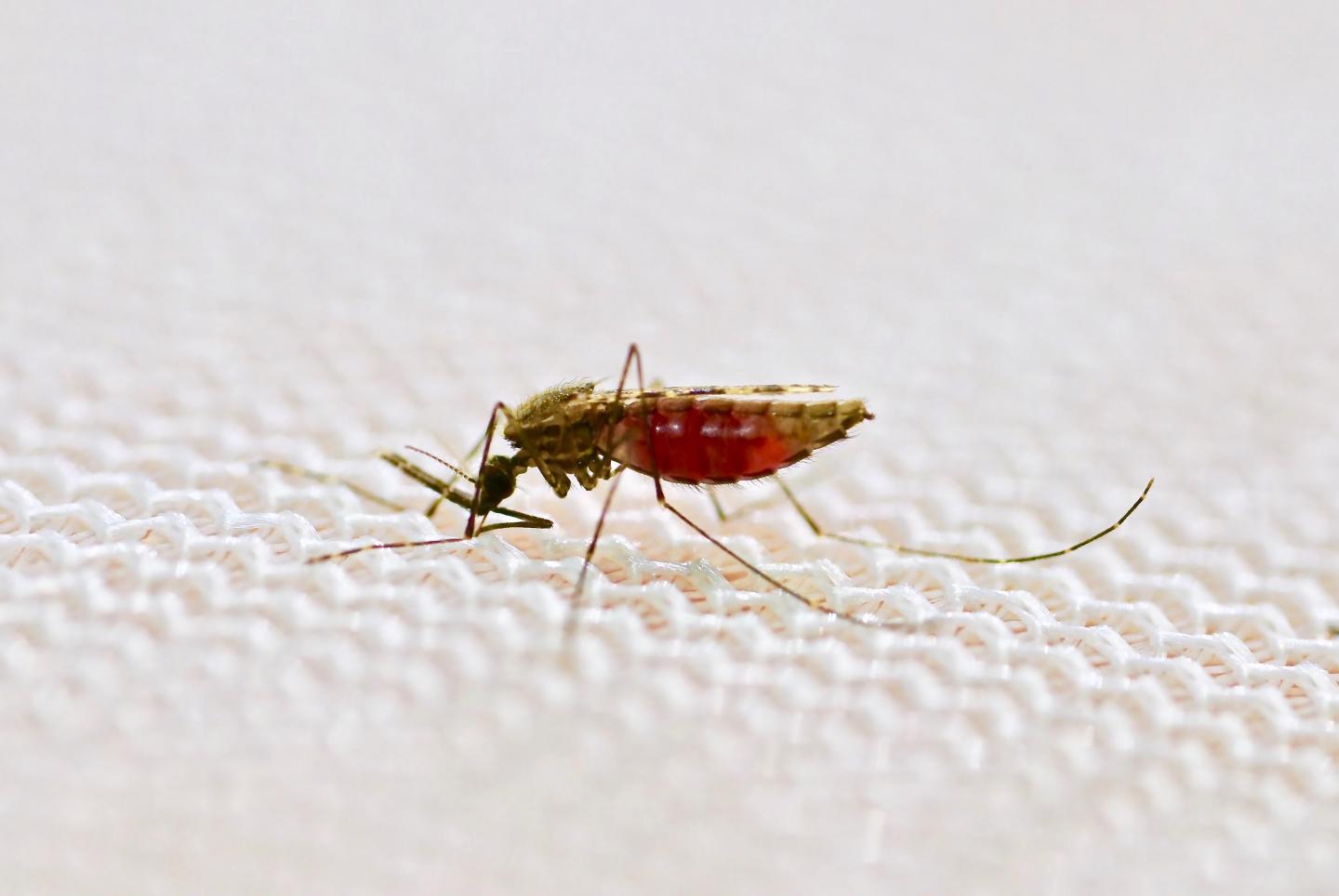
Credit: Emily Lund, Harvard University’s T.H. Chan School of Public Health.
For decades, one of the strongest weapons against malaria has been a one-two punch: low-tech mosquito bed nets to physically block biting, treated with deadly insecticides to kill the mosquitoes.
With widespread use of this combination, malaria deaths have dropped significantly — though nearly 445,000 people died from the disease in 2016 alone. But now the threat is again worsening, as the ever-adaptable pest has become resistant to insecticides.
Lauren Childs, an assistant professor of mathematics in the Virginia Tech College of Science, has joined with researchers from Harvard University’s T.H. Chan School of Public Health, to develop a solution that could prevent or even reduce additional malaria deaths.
Childs is second author on a paper published recently in Nature. Researchers found that they could use the same drug — atovaquone — used to treat the malaria parasite when a person gets sick, coat mosquito bed nets with it, and let mosquitoes ingest the anti-malarial drug. The medication “cures” the mosquito, so it can’t spread the disease.
How did they get the medicine into the mosquitoes? The researchers covered the bed nets with it. Childs’ contribution to the research involved developing computer models that explored how adding atovaquone to the bed nets and its ability to cure individual mosquitoes affected malaria prevalence in the human population as a whole. Childs’ modeling factored in various external conditions, such as the current malaria prevalence, bed net coverage, and level of insecticide resistance.
They found that mosquitoes that sat on the surfaces for six minutes — a typical resting time on bed nets — would absorb the medicine needed to kill the malaria parasite in them. The method could be more effective and less harmful to the people and environment in malaria hotspots. It has several advantages over the current techniques, Childs said.
“The mosquito should not develop resistance to the compounds because we’re just killing the parasite that’s inside it,” she said. “And atovaquone is already a licensed drug, so we know it’s safe for humans.”
A resurgence of malaria due to insecticide resistance among Anopheles mosquitoes is a major threat. Though the U.S. Centers for Disease Control reported that deaths dropped by 25 percent from 2010 to 2016, nearly 450,000 people across the globe died of malaria in 2016. Many of the deaths were children in sub-Saharan Africa.
Developing, getting approval for, and distributing new insecticides to which mosquitoes have not built a resistance could take too long, as malaria illnesses and deaths spread. Childs credited her colleagues at Harvard’s Chan School and the transdisciplinary team that melded her mathematical modeling skills with expertise in epidemiology, biology, public health, and other fields to offer a potential solution to a major global problem.
And it’s a solution that could possibly be implemented in time to make a difference, she said.
“The population in sub-Saharan Africa is accustomed to bed nets and already uses them,” Childs said. “There are a lot of reasons this could move quickly to action.”
###
Media Contact
Lon Wagner
[email protected]
Original Source
https:/




